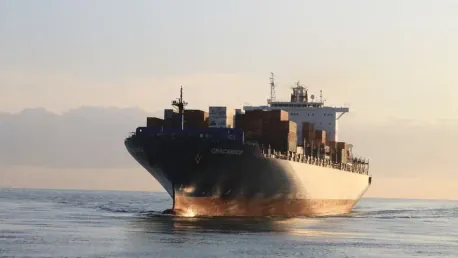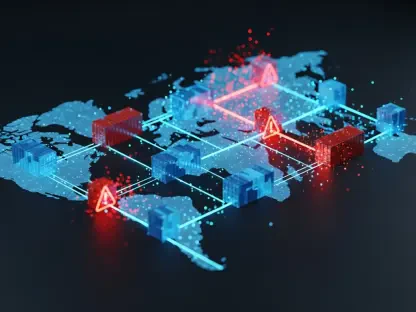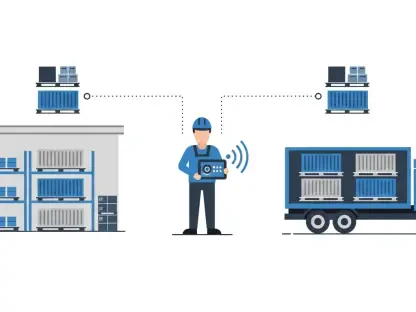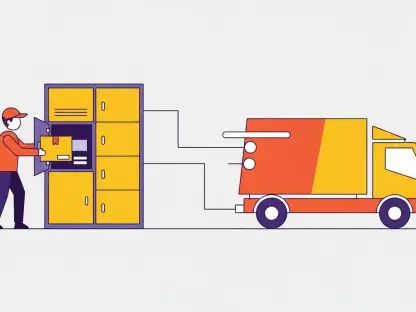The strategic decision by Maersk to invest $2 billion in Pakistan’s port and transport infrastructure over the next two years signifies a pivotal moment for the country. This investment underscores Pakistan’s growing importance in the global logistics landscape. It aligns seamlessly with Karachi’s ambitions to become a major export hub, essential for the country’s economic development. The move reflects a strategic commitment to enhancing efficiency and capacity in a region rich with potential but often challenged by infrastructural limitations.
Formalizing the Partnership
Minister’s Visit to Denmark
A crucial step towards realizing this ambitious investment involves Pakistani Minister for Maritime Affairs, Qaiser Ahmed Sheikh’s upcoming visit to Denmark. This visit is strategically planned to solidify the partnership through the signing of a Memorandum of Understanding (MoU) between Maersk and Karachi Port Trust. The formalization of this agreement highlights Pakistan’s intent to foster a business-friendly environment, thus facilitating smoother export activities from Karachi—a city that’s critical to the nation’s economic dynamics.
The collaboration promises to infuse much-needed vigor into Karachi’s maritime infrastructure. Establishing a robust framework for this partnership is expected to streamline operations and enhance efficiency in cargo handling, directly benefiting the trade and export sectors. With Karachi being the lifeline for much of Pakistan’s import-export activities, this initiative by Maersk aims to ensure the city can meet rising global trade demands. This development not only supports local businesses but also projects a more competent image of Pakistan’s capacity to handle large-scale maritime activities.
Economic and Logistical Impact
The impending MoU is more than just a formal agreement; it represents a bridge between potential and actual economic progress. By setting up a cooperative framework, Maersk and Karachi Port Trust can more effectively coordinate efforts to modernize the port. This will involve upgrading existing facilities and possibly introducing cutting-edge technologies to streamline operations. A revitalized Karachi Port is anticipated to attract more international businesses, thereby increasing the volume of trade passing through the port.
From an economic perspective, this move is expected to generate a multitude of job opportunities, directly and indirectly influencing various sectors tied to maritime activities. Skilled labor in logistics, engineering, and management will likely see a surge in demand, boosting the local economy. Additionally, improved port infrastructure will lower operational costs associated with delays and inefficiencies, making Pakistani exports more competitive on the global market. This comprehensive approach not only positions Karachi as a formidable trade hub but also reinforces Pakistan’s economic resilience.
Complementary Investments
Abu Dhabi Ports’ Contribution
This massive investment by Maersk is complemented by another significant financial commitment from Abu Dhabi Ports. The CEO of Abu Dhabi Ports Pakistan, Khurram Aziz Khan, recently announced a $250 million investment in Karachi Port over the next decade. This commitment includes the development of a $130 million state-of-the-art multipurpose terminal, set to be completed within two years. Enhancements to the container terminal, such as automated gates and expanded berths, will further bolster the port’s capacity and efficiency, ensuring it can manage the increased cargo volumes expected in the coming years.
The infrastructure upgrades from Abu Dhabi Ports are expected to synergize with Maersk’s investments, collectively contributing to a more robust and efficient port infrastructure. This holistic improvement strategy aims to remove existing bottlenecks, facilitating seamless logistical operations. Automation and expanded berths will ensure that larger vessels can dock, reducing the turnaround times that currently plague the port. This, in turn, will empower Karachi to handle a more diverse range of cargo, from bulk commodities to high-value goods, thus enhancing its strategic importance in regional and global trade hierarchies.
Transformative Phase for Maritime Operations
Maersk’s strategic decision to pour $2 billion into Pakistan’s port and transport infrastructure within the next two years marks a critical juncture for the nation. This significant investment highlights Pakistan’s burgeoning role in the global logistics arena and dovetails with Karachi’s vision of evolving into a major export hub, crucial for the country’s economic growth. The initiative embodies a commitment to improving both efficiency and capacity in a region that is abundant in potential yet often hampered by infrastructural challenges. Maersk’s investment is not just about enhancing infrastructure; it’s a vote of confidence in Pakistan’s strategic location and its future possibilities. By bolstering the port and transport sectors, the move aims to streamline logistics operations, reduce transit times, and lower costs, thereby making Pakistan more competitive on the global stage. This development could also stimulate job creation, attract further foreign investments, and promote technological advancements, positioning Pakistan as a vital node in international trade networks.









